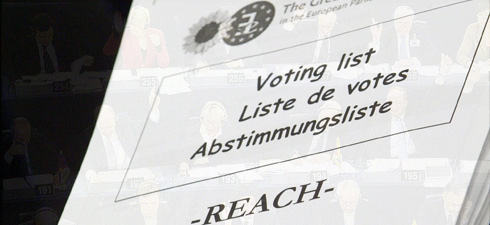Famous parliaments like the British House of Commons have a long history behind them. This is not the case for the European Parliament (EP). Over the years it has become a somewhat confusing and wide-ranging institution representing a total of nearly a half a billion citizens across the EU. “It is not like an ordinary parliament,” admits Jean-Luc Dehaene, Belgian ex-prime minister and leader of the Christian Democratic and Flemish Party’s (CD & V) list in the forthcoming European elections: “I think that Congress in the United States would be a more appropriate comparison than parliaments in EU countries. Also, the fact that we do not represent a single nation state makes us less visible.”
The president of the liberal parliamentary group in the EP, Graham Watson, emphasizes the long-term outlook. “Its time will come. Right now, the best comparison would be with the Constituent Assembly in the aftermath of the French Revolution. We are in the process of building the country of ‘Europe’.” Watson, who has set his sights on the EP presidency, has seen many changes at the parliament since he was elected 15 years ago. “In 1994, 80 percent of MEPs had retired from careers in national politics. Today, we have many more people that are working to make the parliament function effectively. The EP has come a long way since it was founded, and we are now entering a period where we can make major changes.”
However, progress towards major change is often a matter of overcoming small details. Many of Europe’s parliamentarians work on issues like the use of chemical substances (REACH) or CO2 emissions from different types of vehicles. These are important matters that directly affect the living and working conditions of EU citizens, but they are not always easy to explain.
Dehaene understands the attraction of technical questions for MEPs. “Technical specialists are often appointed to represent the entire parliament in talks with the Commission and member states. That kind of position gives you a lot of power, certainly more power than you have in a national government. It is an opportunity to negotiate on almost equal terms with ministers and commissioners.” Among other things, the EP enables parliamentarians to take advantage of the fragmentation of power in Europe.
Dorette Corbey of the Dutch Labor Party (PvdA,) is an example of one parliamentarian, who decided to follow the technical route. Within the framework of the REACH directive and the Energy & Climate Package, she was appointed to negotiate with both the Commission and the Concil. “I was able to put my stamp on the directive on fuels, and also on the exchange of emissions quotas and renewable energies.”
As a result, Mrs Corbey found that an increasingly large amount of her time was devoted to chemistry and ecology. “Sometimes, it was so difficult to explain what we do, I did not even try. REACH was terribly technical, but it had to be if it was to be effective: we had to define what substances should be regulated, the rules for particular types of company, and what type of circumstances justified the use of animal testing as a safety requirement. It is true that we are often upstaged by members of national parliaments, and that can be frustrating, but I am confident that I was able to make a difference.”
The fact that the questions discussed in Brussels and Strasbourg are often highly technical does not make the debates very attractive. “It’s also a problem for the media,” points out Dehaene. “The rules discourage showmanship, and that is why the media tend to stay away. Maybe we should bring them in by organizing an MEP boxing tournament, or having someone make a speech naked,” he jokes.
However, Dehaene does acknowledge that the parliament may also be at fault. “Some of us were not born for a life on the stage.” But he does not think that more time on the microphone is the solution: “With more than 700 MEPs, we need to maintain a certain discipline. We cannot have debates that go on forever.”
Was this article useful? If so we are delighted!
It is freely available because we believe that the right to free and independent information is essential for democracy. But this right is not guaranteed forever, and independence comes at a cost. We need your support in order to continue publishing independent, multilingual news for all Europeans.
Discover our subscription offers and their exclusive benefits and become a member of our community now!












